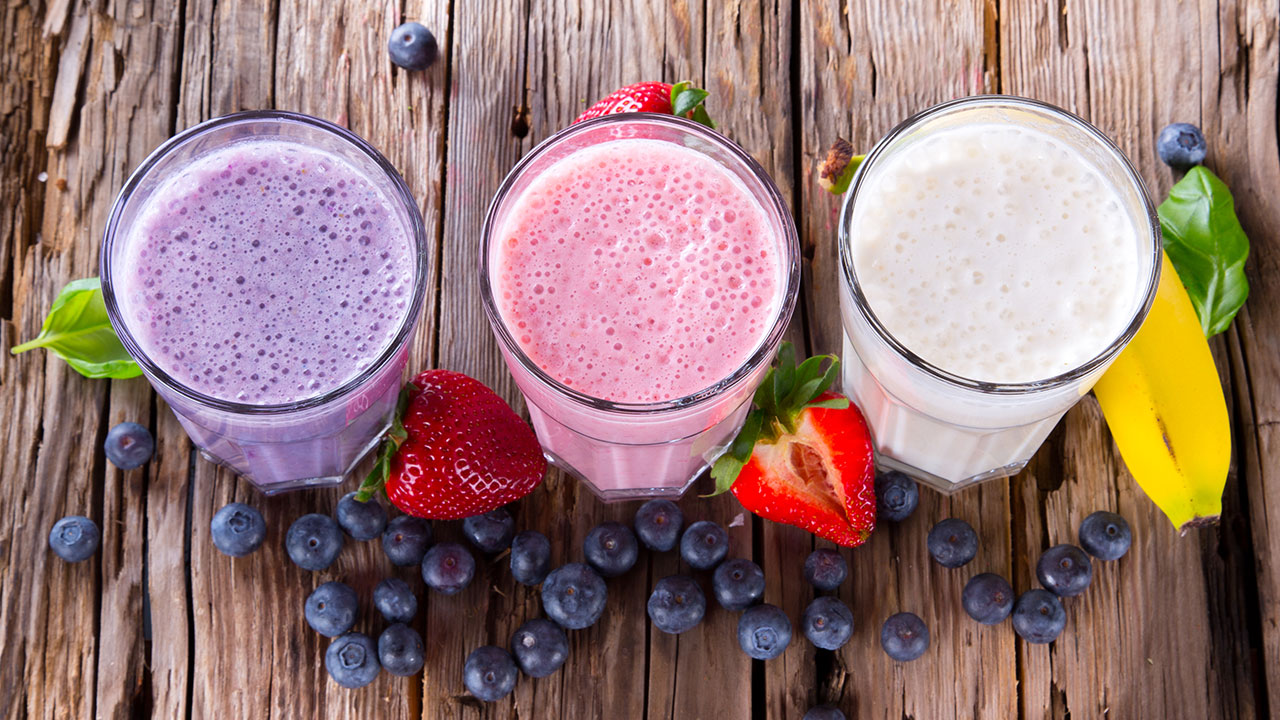Are Meal Replacement Shakes Effective for Weight Loss

Hey Angels and Alphas,
Have you ever found yourself sitting on your desk in between meetings and realizing you’ve only got 10 minutes to get lunch? And if you haven’t prepped anything ahead of time, and 10 minutes only gets you as far as the nearest fast food joint, it’s easy to see how that can be a problem if you’re trying to stick to a weight loss goal.
Here’s where meal replacement shakes come in and are promoted as an easy solution to this problem. Quick, convenient, pre-made drinks that are easy to find in grocery stores. How thoughtful, right?
But are they actually any good, and can they replace real food? Let’s see what the science is saying.
There’s a wide variety of meal replacement shakes for weight loss.
First, there are those shakes branded as “for weight loss.” Then, there are these newer shakes that aren’t specifically for the people trying to lose weight. They’re just marketed as a solution for people in a hurry.
Meal replacement shakes are designed to be a complete meal instead of the usual low-calorie, weight-loss shakes you’re used to seeing. And although they’re not intended for weight loss, they can still be an option for people looking to maintain or lose weight. They’re very popular among athletes for post-workout and pre-workout meals, and pretty much anyone who is pressed for time can use them.
Meal replacement shakes have been making a big comeback since they’re so convenient and easy. Especially during those 10-minute lunches or early in the morning. People automatically assume every meal replacement shake is for weight loss and this can backfire big time. These shakes are, however, a great tool for proper weight management.
Are they any good in terms of weight loss?
People often associate these drinks with weight loss, but that doesn’t mean they’re automatically useful. Dietitians haven’t really made up their minds on whether or not they’re even a good thing.
Some nutrition pros believe they’re great for weight loss, especially when compared to their usual alternative – overly processed foods. These shakes can also be a great source of vitamins and minerals compared to fast food. They can be a pretty safe bet in terms of portion control and serving size.
On the other hand, some dietitians believe that eating real food is still technically better than a meal replacement shake. While shakes are usually preferred to skipping meals, some research out there shows that they’re not often linked to sustainable dietary behaviors meaning you can’t rely on them in the long term. It’s true that they can be both easy and nutritious, but they’re still generally low in fiber.
But yes, drinking a shake will always be better than skipping a meal – all the more true for people who want to lose weight. If you’re someone who is trying to achieve a specific weight loss goal, but you find yourself skipping meals (a common one is breakfast,) these shakes might be of value to you. They can certainly be a part of a balanced diet and can help you meet your macro needs whenever you need it.
Just don’t think that you can rely on them in the long term. You can’t replace meals with shakes every day. And if these weight loss shakes lead to drastically restricting your calories, this might backfire on your weight-loss efforts.
What should you look for in a shake?
First and foremost, all three macronutrients. Always go for one that has protein, carbs, and fat. If you’re not getting a healthy balance of them, you’re not going to really feel satisfied as if this were an actual meal… which will lead to overcompensating later in the day.
Second, enough calories. Some of the best replacement drinks would actually mimic the nutrients you’d get in a full meal. Depending on how many calories you need to consume, this could be anywhere from 200 to 400 calories, up to 20 grams of protein, more than 5 grams of fiber, and 10 grams of fat. The lower the sugar, the better.
And finally, vitamins and minerals. Shakes usually contain a wide variety of vitamins and minerals as they’re fortified, and they help you meet your daily requirements for a lot of micronutrients. While this varies from drink to drink, the golden rule of thumb is that your drink should meet about 30-40 percent of your recommended daily intake for all the major vitamins and minerals.





